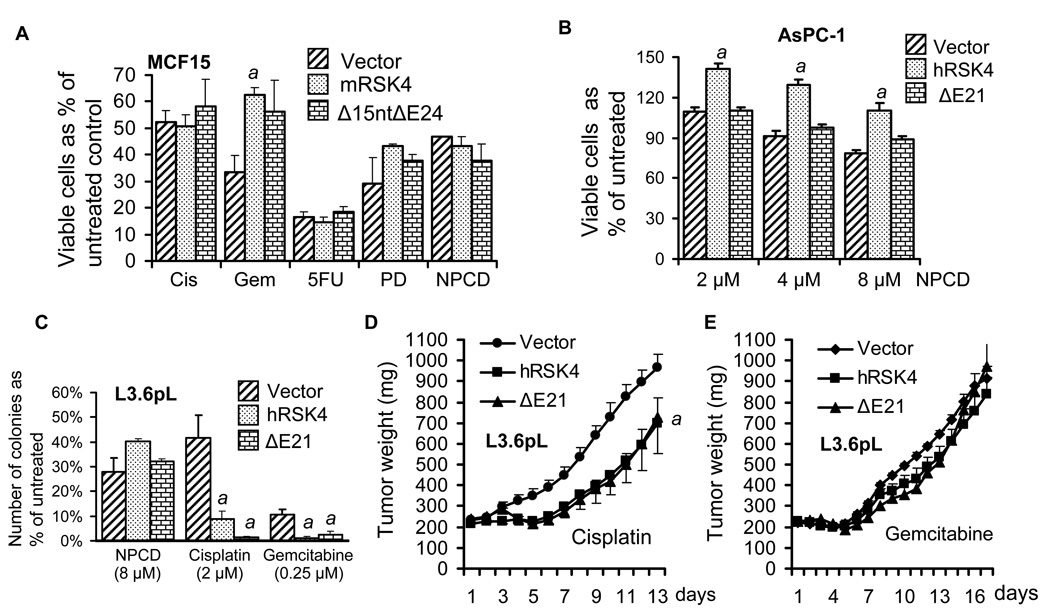Fig. 12.
Effects of RSK4 on the response of cancer cells to chemotherapeutic agents. Data are presented as mean ± SD. A: In transfected MCF15 cells, MTT assay shows that the intact mRSK4 causes resistance to gemcitabine (Gem), relative to the pcDNA3.1 empty vector, whereas neither the intact mRSK4 nor its Δ15ntΔE24 variant affects the response to cisplatin (Cis), 5-fluorouracil (5-FU), PD0332991 (PD) or NPCD. B: In AsPC-1 cells sorted for different constructs, MTT assay shows that the intact hRSK4 increases the cell viability in response to escalating concentrations of NPCD. C: In L3.6pL cells sorted for different constructs, clonogenic survival assay shows that the intact hRSK4 and the ΔE21 decrease the number of cells that survive the treatment with cisplatin and gemcitabine, compared with the vector. D and E: SCID mice bearing xenograft tumors developed from sorted L3.6pL cells were treated with cisplatin (D) or gemcitabine (E). The intact hRSK4 tumors weigh similarly to the ΔE21 tumors but both are significantly smaller than the vector tumors in cisplatin treated mice. No difference is observed among the three groups treated with gemcitabine. a: significantly different from the vector counterpart, which for the tumor weights is calculated only for the last three days (p<0.05).

